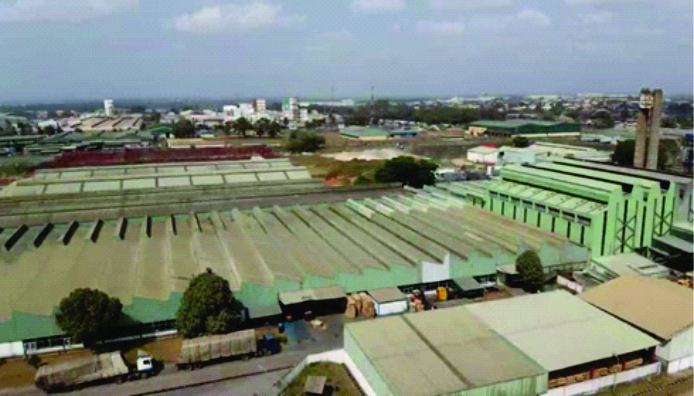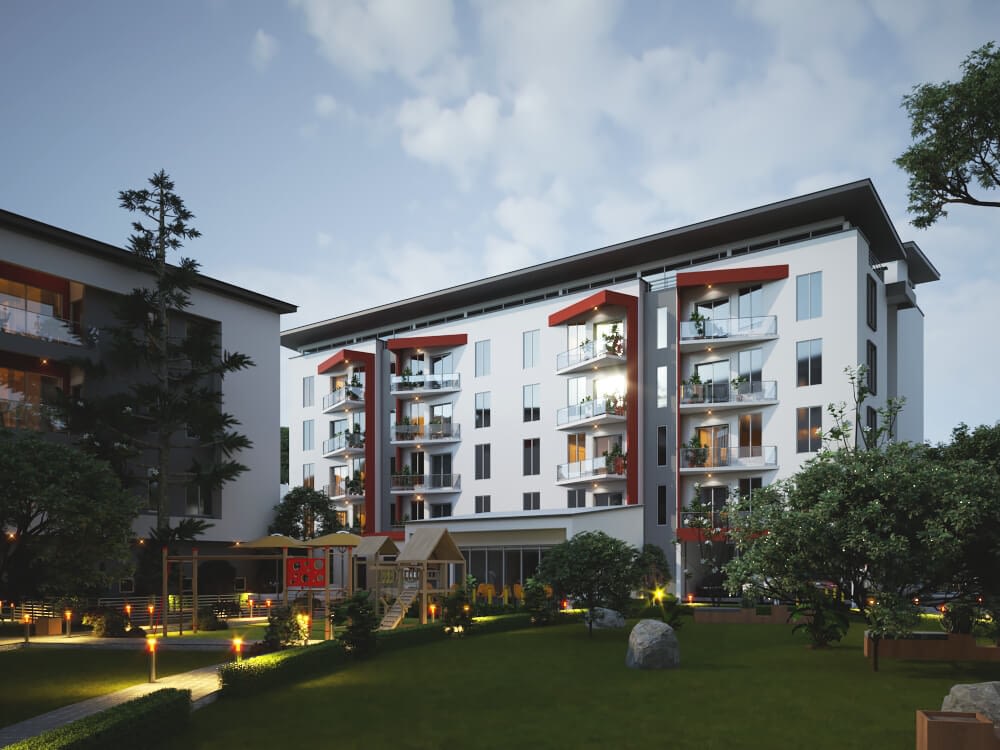By Alex Ekemenah
Agbara Industrial Park has rapidly transformed into the manufacturing hub for the West African sub-region, making it the heartbeat of industrial production for the region.
The transformation took place amidst political instability and economic downturns at various times thus showing the resilience and sustainability of the industrial park over the decades since it was established by strategic foresight.
This strategic foresight was the result of the vision of a man, someone that can only be described as an enterprenuer extraordinaire, late Chief Adeyemi Olusola Lawson.
His vision spanned and captured the entire West African sub-region as the main area of operation, a vision that has now turned to reality of the existing products constantly coming out of Agbara Industrial Park as part of the most viable economic zones in the whole of Africa.
Manufacturers have since inception searched for suitable locations to produce their products effectively. The vision was finally berthed at Agbara, about 26 km outskirt west of Lagos, as the Africa’s premier industrial hub as far back as early 70’s.
Since then the industrial enclave has rapidly become the hotspot for a wide range of manufacturing companies, attracting local and international players to Nigeria.
Its modern main feature is its location between the two port locations of Lagos and Badagry, which is set to become West Africa’s largest deep-sea port. The industrial zone provides direct access to the main Lagos-Badagry Expressway that connects the commercial capital of Nigeria to the rest of the ECOWAS – Economic Community of West African States.
The industrial park is located on a 454 Ha of land that is still evolving in its development driven by a balanced ecoystem that embraces security, human resources and conducive working environment.
Agbara Industrial Park has thus been chosen by a wide range of reputable foreign multinational and local manufacturing firms for five decades, including Unilever, Nestlé, GSK, Shell, Procter & Gamble, Reckitt Benckiser, LG, Pharma Deko, VitaMalt, Beta Glass, Perfetti Van Melle, Evans Medical, Big Bottling Company, Nigerian Breweries, UAC, Suntory, Cometstar, Beloxxi, Corona School, more than 10 financial institutions and many other reputable firms.
Agbara Industrial Park is under the management of LandAfrique, a multinational corporation that include other businesses.

The Coronavirus Pandemic (SARS-CoV-2 or Covid-19) which raged throughout 2020 negatively affected businesses worldwide.
However, under the LandAfrique portfolio, Agbara Industrial Park has been preparing during the pandemic period for a renewed post-Covid repositioning of its prime status within the industrial & logistics real estate sector.
The Lagos Badagry Expressway works that are about to be finalized are logically contributing to the upgraded accessibilities and intermodal connectivity of this world-class producing and manufacturing hub.
The Agbara Industrial Park tenants have access to a complete range of reliable on-site services and robust infrastructural features, which include but not limited to the following:
- LNG (Gas line) connection to all properties for low-cost 24/7 electricity. The Estate Industrial Park is equipped with a 100 mmscf per day gas pipeline owned and operated by Shell.
- An electricity substation connected to the National Grid.
- A new Independent Power Plant (42 MW gas turbine) combined with a heat recovery system for steam production.
- Photovoltaic solar plant.
- Central Sewage Treatment System.
- Renewed access control.
- Industrial grade roads.
- Hard ground – not waterlogged.
- 24/7 Police and Agbara Estate Security Patrol.
- Solar powered streetlights.
- Plenty of underground water and in the nearby lagoon.
- Broadband fibre internet.
Strategically located off the Lagos-Badagry Expressway between the two ports locations of Apapa and Tin Can in Lagos and Badagry seaport, Agbara Industrial Park in a unique intermodal location served by two ports, two main road arteries including the almost completed Lagos – Badagry Expressway, 35 minutes from the international airport and with a station on the Light Rail Mass Transit connecting Lagos to Badagry.

Since 1970, Agbara Industrial Park has been the launching platform for many companies in West Africa that wish to operate efficiently. The renewed 2.0 version will cement further the leading position as Nigeria’s manufacturing heart with additional features to complete the robust package it offers to its tenants, whereas the latest novelty in the planning is a vocational training school.
About LandAfrique – Real Estate & Infrastructure
LandAfrique is an integrated (mixed used) real estate & infrastructure firm that provides opportunities for employment, education, healthcare, manufacturing, industrialization, affordable housing, and logistics by doing business in smart, efficient and sustainably built environments, in West, East and Southern Africa.
The company is focused in lending their weight to the aforementioned mission by creating scalable, impacting, sustainable and affordable solutions for emerging Africa.
The company has five decades of proven experience as real estate market leader and has efficiently managed their 454Ha Agbara Industrial Park, that accommodates Unilever, Nestlé, GSK, Shell, Procter & Gamble, Reckitt Benckiser, LG, Pharma Deko, VitaMalt, Beta Glass, Perfetti Van Melle, Evans Medical, Big Bottling Company, Nigerian Breweries, UAC, Suntory, Cometstar, Beloxxi, and many other well-known blue chip manufacturing tenants. LandAfrique is now expanding to new real estate & infrastructure endeavors, building inter-modal infrastructures, and setting up extensive large-scale agricultural projects in Sub-Saharan Africa.


